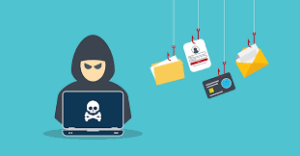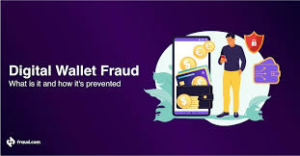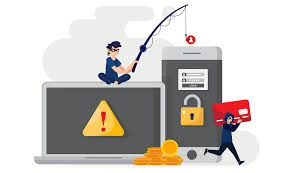Banking scams manifest in various ways, with con artists employing diverse strategies to unlawfully acquire your funds. It is crucial to familiarise yourself with these fraudulent schemes and learn how to safeguard your finances.

Originally published on April 18, 2016, and most recently updated on August 14, 2023, this information remains pertinent in today’s ever-evolving landscape of financial deceit.
One prevalent method of deception is telephone scams, particularly vishing, short for ‘voice phishing. ‘ Vishing involves perpetrators making phone calls while masquerading as representatives from your bank, HM Revenue and Customs (HMRC), the Financial Conduct Authority (FCA), or similar organisations.
These scammers often employ alarming tactics designed to provoke an urgent response from their targets. They may assert that your bank account is under threat or that you owe an immediate payment for an alleged debt. In some cases, they might claim to be from your bank’s fraud prevention unit, calling to verify suspicious activity linked to your account.
The communication may come from a live individual or an automated voice recording. Regardless of the source, the intent remains the same: to extract sensitive personal information from you, including your banking credentials or log-in details.

To enhance their credibility and manipulate your trust, these fraudsters frequently utilise a technique known as number spoofing. This method allows them to alter the caller ID information displayed on your phone, making it appear as though the call is originating from a legitimate institution.
As you navigate the complexities of modern banking, it is essential to remain vigilant and informed about these fraudulent practices. By understanding the tactics employed by scammers, you can better protect yourself from becoming a victim of their schemes.
Understanding Number Spoofing
In the world of telecommunications, there exists a deceptive tactic known as number spoofing. This occurs when malicious individuals manipulate the number that appears on your caller ID, making it seem as if the call is coming from a legitimate institution, such as a bank or another recognised organisation. Their ultimate goal is to deceive you into revealing sensitive information regarding your financial accounts.

It’s worth noting that there have been instances where our official switchboard number has been misused in this manner, appearing on the caller IDs of unsuspecting individuals. This practice can leave people feeling vulnerable and confused, unsure of who they can trust when their phone rings.
To shield yourself from the risks posed by vishing and number spoofing, consider adopting some prudent measures. For starters, if you receive a call from an unfamiliar number, it’s wise to refrain from answering; instead, let the call go to voicemail. By doing so, you can evaluate whether it’s worth returning the call. Should you find yourself on the line with someone who raises your suspicions, don’t hesitate to hang up. A safer approach is to use verified contact information from trusted sources, such as the Financial Services Register or the details printed on your bank statement, to reach out and confirm any inquiries.
Furthermore, it’s crucial to safeguard your personal information. Never disclose sensitive data unless you are entirely confident about the identity of the caller. Remember this golden rule: never share your banking or credit card details without being sure of who you are communicating with. If you happen to have already shared such information with fraudsters, you must contact your bank immediately. Use the contact information found on the Financial Services Register to ensure you’re speaking with a legitimate representative.

There is a wealth of information available for those seeking additional resources on how to protect themselves from various scams, including online banking scams and phishing attempts. Taking proactive steps to educate oneself about these threats can significantly reduce the risk of falling victim to such schemes.
In this digital age, staying informed and vigilant is your best defence against deception.
In the digital age, the rise of online banking has brought with it a shadowy underbelly of scams that prey on unsuspecting users. One particularly insidious method employed by these criminals is known as phishing. This deceptive practice involves fraudsters masquerading as representatives of your bank, reaching out through emails or text messages. They often craft messages that implore you to confirm sensitive information about yourself—details such as your online banking passwords, account numbers, or card information.
These communications typically come with a fabricated narrative designed to instil a sense of urgency or concern. They might claim that you need to verify your details for reasons like receiving a refund, undergoing a security check, or even protecting yourself against potential fraud. It’s crucial to keep in mind that legitimate banks will never reach out to you via email or text message requesting personal information or account specifics. Be particularly wary if the correspondence lacks your proper name or is riddled with spelling errors and poor grammar.

If you ever find yourself questioning the authenticity of an email or text purportedly from your bank, the safest course of action is to contact them directly. Use the phone number printed on your debit or credit card, found on your bank statements, or listed on the Financial Services Register. Avoid any numbers provided in the suspicious message itself.
Another common threat comes in the form of website scams. Here, criminals create counterfeit bank websites designed to look strikingly similar to genuine articles, often using web addresses that closely mimic those of legitimate banks. As part of their phishing schemes, these fraudsters may attempt to lure you into their trap by including a link in an email or text message that directs you to their fake site.
To safeguard yourself from falling victim to such scams, it’s vital to meticulously examine the website address before entering any personal information. Look for subtle discrepancies—perhaps an additional letter or hyphen that sets it apart from the actual website. A wise precaution is to bookmark your bank’s official website address so you can easily access it without risk.
Card scams represent yet another avenue through which thieves can pilfer your information. These scams often involve skimming, a technique where fraudsters clandestinely capture data from the magnetic strip of your bank or credit card while you use an ATM or make a purchase in-store. With this stolen information, they can gain unauthorised access to your account or produce counterfeit cards bearing your details.

To protect yourself from skimming, always safeguard your Personal Identification Number (PIN) and ensure it remains concealed when you enter it. Stay vigilant for any signs of tampering at ATMs, routinely review your bank statements for any unauthorised transactions, and report any suspicious activity to your bank without delay. Additionally, if you plan to travel abroad, inform your bank ahead of time to help prevent any potential issues with your accounts.
In the realm of business operations, there exists a lurking threat that many entrepreneurs may not readily recognise—supplier scams. Picture this: you’re diligently managing your company’s affairs when, out of the blue, you receive a communication from someone claiming to be one of your trusted suppliers. At first glance, their message seems innocuous enough, but as you delve deeper, you realise they are attempting to pull a fast one on you. They assert that their banking information has recently changed and urge you to update your payment details immediately.

But the deception doesn’t stop there. These fraudsters are often cunning, going so far as to impersonate a high-ranking member of your organisation in an email, creating a sense of urgency that is hard to ignore. They might craftily insist that you need to conduct a transfer without delay, playing on your instinct to respond quickly in the fast-paced world of business.
In such situations, it is vital to remain vigilant. One of the simplest yet most effective precautions you can take is to verify the authenticity of the email address. Ensure it matches the one you have consistently used for communication with your supplier in the past. If anything seems amiss or raises your suspicions, do not hesitate to reach out directly. It’s wise to call them back using a phone number you know is legitimate or, better yet, engage in a face-to-face conversation if possible.

Moreover, should you find yourself entangled in such a scam, it is imperative to report the incident promptly. Raising awareness about banking scams can help protect not only your business but also others who might be vulnerable to similar tactics employed by these unscrupulous individuals. In navigating the complexities of business relationships, staying informed and cautious can make all the difference in safeguarding your hard-earned resources.
Maxthon
Maxthon is on the brink of revolutionising the world of cloud gaming with its innovative browser, specifically designed for gamers. At its core lies a sophisticated network of algorithms that work tirelessly to enhance speed and performance, crafting an environment where gameplay can truly excel. These state-of-the-art technologies come together in perfect unison, delivering breathtaking visuals while effectively eliminating any latency that might disrupt the gaming experience. For those adventurers seeking an immersive journey, this seamless blend is not merely an added feature; it is an essential component that elevates the entire experience to extraordinary heights.

However, Maxthon’s appeal stretches far beyond its stunning graphics. The browser employs cutting-edge data management techniques that significantly reduce loading times between levels or game modes. This innovation allows players to dive straight into the action without the frustration of prolonged waits, enabling them to relish every thrilling moment of their gaming escapade.
In addition to its remarkable speed and visual excellence, Maxthon strongly emphasises dependable connectivity. Gamers can rely on a steady connection with minimal interruptions, whether they are embarking on solitary quests or teaming up with friends for online skirmishes. This commitment to maintaining robust connections dramatically enhances the overall enjoyment of the gaming experience.
One of Maxthon’s most impressive features is its ability to operate smoothly across a diverse range of devices. Whether using a smartphone, tablet, or desktop computer, accessing your favourite games has never been more straightforward; the days of being tethered to a single console are long gone. This versatility adds a new dimension of convenience to your gaming routine. Imagine sinking into your favourite chair after a tiring day and effortlessly resuming your adventure with just a few taps on your device—this encapsulates the genius of cross-device functionality that Maxthon offers.
